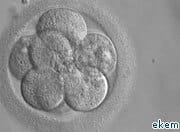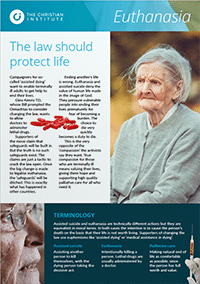Fewer than one in five people support the creation of three-parent children through genetic modification, according to a new survey.
The ComRes poll, commissioned by Christian charity CARE, found that 18 per cent are in favour of the procedures, and close to half of respondents (46 per cent) oppose the plans.
Of the 2,058 British adults who were surveyed, 35 per cent said they “don’t know” to what extent they support the techniques.
Strong opposition
The Government is pressing ahead with plans to allow the procedures, despite a recent public consultation revealing strong opposition to the proposals.
Conservative MP Fiona Bruce commented: “Time and again when the public are made aware of these procedures, they have made their opposition clear, both through consultations and consistent polling.
“What is so interesting about this set of data is that it shows that support for 3 parent children is simply not there and that pushing these regulations through will be a vote loser.
Public safety risks
“When we take in to account that there are serious public safety risks it becomes very hard to see why the Government is pushing this so hard”, she added.
Labour MP Mary Glindon said: “The Government is pushing this through on the entirely false notion that these are cures for mitochondrial disease. Worse, they are making those who are concerned about safety feel as if they somehow want to see people with the disease suffer.
“The Government must come clean. These techniques don’t heal anybody, but bring in to existence a new individual with two mothers. There are real public safety concerns about mitochondrial transfer across the scientific community, and, as this polling shows, the more the public learns, the less support there is for this legislation”, she commented.
Serious concerns
Several MPs raised serious concerns about the Government’s plans to allow the techniques in a House of Commons debate on the issue last week.
The procedures aim to create children free from mitochondrial disease.
If the law is changed, the UK would become the only country in the world to allow the techniques, called Maternal Spindle Transfer (MST) and Pro-Nuclear Transfer (PNT).
Three parents
MST involves replacing the nucleus in a healthy donor egg with the nuclear DNA from the prospective mother – resulting in a baby with DNA from three parents (a chromosomal mother, an egg mother and a sperm father).
PNT creates a child from four different individuals (a chromosomal mother, a chromosomal father, an egg mother and a sperm father).


